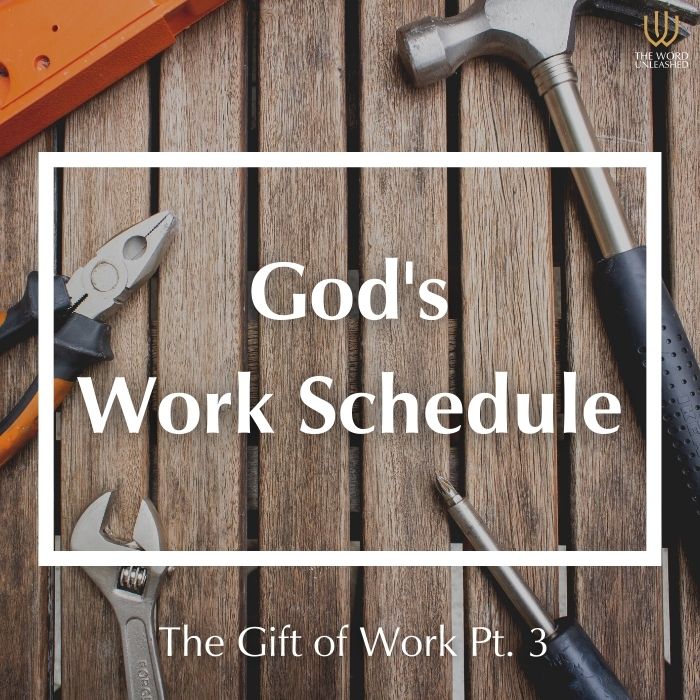
As we continue to develop a theology of work from the book of Proverbs, in particular, the gift of work, I want us to consider the two primary ways in which our God is still at work today.
First, God is working providentially. That is, not only does God continue to sustain everything He created, but He also directs all things to the ends for which He made them. If we think of providence at its most basic level, we must understand that God is currently making sure that everything continues to exist just as He desires it to exist. He sustains this world through His Son Jesus Christ just as equally as He created this world through Him—it’s in Him all things hold together; it’s in Him that all things consist (Col. 1:16–17). So, God is directing all things to the ends and purposes for which He made them.
Second, God is working redemptively. Even though the accomplishment of redemption was done in the person and work of Jesus Christ on the cross, God is still working redemptively today. What exactly does this look like?
Simply put, God is redeeming a people by His Son, for His Son, to His own glory. He is currently working to bring His eternal plan of redemption to pass.
You may not have thought about this before, but God created you to work just as He continues to work. Genesis 1:26 says, “Then God said, “Let Us make man in Our image, according to Our likeness; and let them rule over the fish of the sea and over the birds of the sky and over the cattle and over all the earth, and over every creeping thing that creeps on the earth.” At this point in the Genesis narrative, God is deliberating about the creation of mankind. Even though there is a lot of debate about what it means to be made in the image of God, we can be sure that part of what it means is to work like God works. God instructed man to “rule over the fish of the sea and over the birds of the sky and over the livestock and over all the earth, and over every crawling thing that crawls on the earth” (Gen. 1:26). In other words, mankind was created to work. You were created to work!
Furthermore, work reflects the image of God Himself. That is why Adam worked before the Fall. Genesis 2:15 says, “Then the Lord God took the man and put him in the Garden of Eden to cultivate it and tend it.” God placed Adam in the Garden of Eden to work. After the Fall (Gen. 3), God cursed work and then it became what it was not before, a struggle. So, now, work is a fight against the cursed earth. That is why Genesis 3:19 tells us that humanity will now work by the sweat of our brow. Not because work is the curse, but because work itself—which was a gift—has been cursed.
Thankfully, at a specific time in the future, after God makes a new heaven and a new earth, we will still work. Revelation 22:3 says, “There will no longer be any curse; and the throne of God and of the Lamb will be in it, and His bond-servants will serve Him.” This text reveals a future removal of the Genesis 3 curse, and the fact that all believers will work in the new heaven and earth. Here is the point: to work is to be like God. Of course, I am not saying that believers become God. I am saying, however, that work itself is a divine gift. Ecclesiastes 5:19 says, “He has also given him the opportunity to enjoy them and to receive his reward and rejoice in his labor; this is the gift of God.”
It was this concept that moved the Reformers to understand that work was not a secular thing, but a sacred thing. Martin Luther writes,
“Your work is a very sacred matter. God delights in it and through it, He wants to bestow His blessing on you. The world does not consider work a blessing. Therefore, it flees and hates it. But the pious who fear the Lord, labor with a ready and cheerful heart for they know God’s command and will. Thus, a pious farmer sees Psalm 128:2 written on his wagon and plow. A cobbler sees it on his leather and awl. A laborer sees it on wood and iron. What does it say? When you eat of the fruit of your hands, you will be happy, and it will be well with you.”
The fact of the matter is, God delights in work and all Christians have been uniquely gifted by God for work. He shaped you in your mother’s womb and specifically gifted you to serve Him and to serve others. Work truly is a gift that reflects God’s character.
Next time we’ll continue to look at theme of work by examining how it relates to the divine will of God.